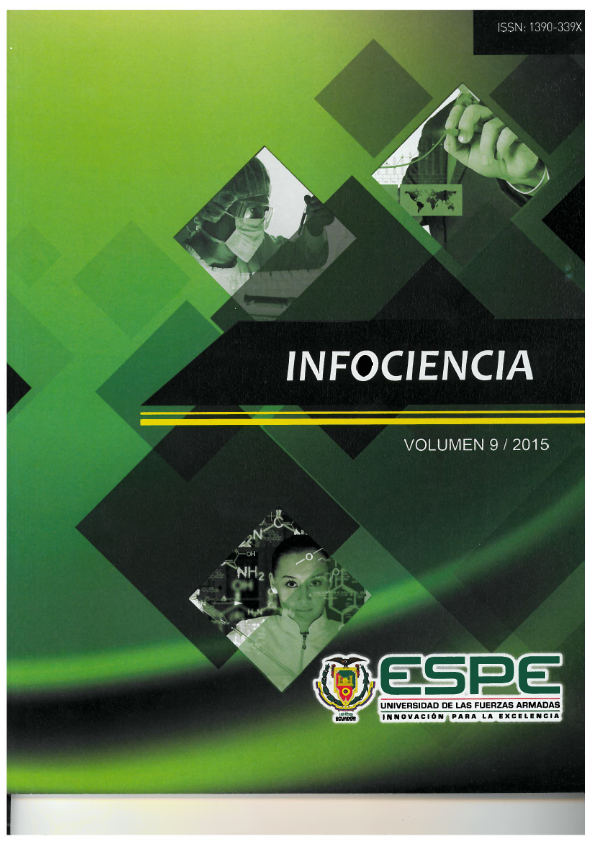Procedimiento de Trabajo Colaborativo Asistido por Computador para el Desarrollo del Artículo: Crowdsourcing en la Ingeniería de Requisitos
DOI:
https://doi.org/10.24133/infociencia.v9i1.976Abstract
Se presenta un procedimiento de trabajo para colaborar en el desarrollo del artículo, donde se utilizan herramientas informáticas para su soporte. Se muestra información que fundamenta el potencial del crowdsourcing en la ayuda a la ingeniería de requisitos, aunque este campo plenamente está todavía por explorar, nos centramos en la etapa de obtención de requisitos. Se examina la literatura sobre crowdsourcing en una variedad de disciplinas y se deduce un conjunto de características que son la base de sus principales construcciones. Se describe CrowdREquire, una plataforma que apoya la ingeniería de requisitos utilizando el concepto de crowdsourcing. Se especifican los métodos StakeNet y StakeRare y la herramienta StakeSource que apoyan la obtención de requisitos en grandes proyectos de software.
Downloads
Published
Issue
Section
License
COPYRIGHT: Los derechos de autor en todas las colaboraciones que sean aceptadas para su publicación permanece con sus autores, y la revista sólo adquiere los derechos de su publicación. Los autores quedan en plena libertad de volver a usar su propio material pero si la totalidad o cualquier parte del material publicado es reproducido en otro sitio, el autor deberá reconocer a INFOCIENCIA como el sitio original de la publicación.
Igualmente, la revista no asume responsabilidad alguna por las posibles violaciones a derechos de terceras personas por el material suministrado por los colaboradores.
Para ello está establecido una declaración de responsabilidad del autor(res), sobre la originalidad del artículo.
POLÍTICA DE ACCESO ABIERTO
La revista provee acceso libre inmediato a su contenido bajo el siguiente principio: Hacer que material de investigación esté disponible gratuitamente al público, apoya a un mayor intercambio del conocimiento global y administrado en línea bajo el sistema Open Journal System (OJS).

